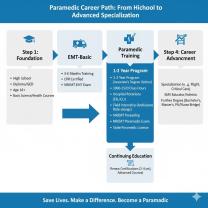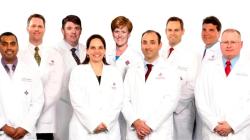Are osteopathic doctors MDS?
Osteopathic doctors (DOs) and Medical Doctors (MDs) are both licensed physicians who complete medical school and training to practice medicine. While they share many similarities, there are some differences in their training, philosophy, and approach to healthcare. Here's an overview of the key distinctions:
Medical School Training:
- MDs: MDs attend allopathic medical schools, where they receive training in conventional or Western medicine. This training focuses on diagnosing and treating diseases and conditions primarily through medication, surgery, and other conventional medical interventions.
- DOs: DOs attend osteopathic medical schools, where they receive training in osteopathic medicine. Osteopathic training includes conventional medical principles, but it also emphasizes a holistic approach to healthcare. DOs learn osteopathic manipulative treatment (OMT), a hands-on approach used to diagnose, treat, and prevent illness or injury.
Philosophy and Approach:
- MDs: MDs typically follow the allopathic or conventional approach to medicine, focusing on the treatment of symptoms and diseases using drugs and surgery.
- DOs: DOs are trained to consider the patient as a whole, taking into account not only physical symptoms but also the patient's lifestyle, environment, and well-being. They may use OMT as an additional tool to complement their medical practice.
Residency and Specialization:
- Both MDs and DOs have the opportunity to specialize in various medical fields through residency training, such as surgery, internal medicine, pediatrics, and more. The training and specialization options are similar for both groups.
Licensing and Practice:
- Both MDs and DOs must pass the same licensing exams to practice medicine in the United States and many other countries. They are licensed to diagnose, treat, and prescribe medications.
Recognition and Acceptance:
- Both MDs and DOs are recognized as fully licensed physicians in the United States and many other countries. They can practice in hospitals, clinics, and other healthcare settings.
Scope of Practice:
- In terms of general medical practice, MDs and DOs have similar scopes of practice. They can work in primary care, specialties, and subspecialties, and there is no significant difference in the types of medical conditions they can treat.
In summary, while there are differences in the training and philosophy of MDs and DOs, both groups are licensed physicians who can diagnose, treat, and care for patients. The choice between becoming an MD or a DO often depends on an individual's personal beliefs and preferences regarding healthcare philosophy and the inclusion of osteopathic principles in their training. Regardless of their title, both MDs and DOs play important roles in the healthcare system and contribute to patient well-being.
Understanding Osteopathic Doctors (DOs) and Their Credentials
Osteopathic doctors (DOs) are fully licensed physicians who practice osteopathic medicine. Osteopathic medicine is a holistic approach to healthcare that emphasizes the body's ability to heal itself. DOs are trained to diagnose and treat a wide range of medical conditions, using both conventional and osteopathic medicine practices.
DOs have the same credentials as medical doctors (MDs). They complete four years of medical school, followed by a residency program in their chosen specialty. DOs are licensed by the same state medical boards as MDs and can prescribe medications and perform surgery.
The Education and Training of Osteopathic Doctors
DOs receive their medical education from osteopathic medical schools. These schools offer the same rigorous curriculum as traditional medical schools, including classes in anatomy, physiology, biochemistry, pharmacology, and clinical medicine. Additionally, osteopathic medical schools teach students about osteopathic manipulative medicine (OMM).
OMM is a hands-on approach to healing that focuses on the musculoskeletal system. DOs use OMM to diagnose and treat a wide range of conditions, including pain, muscle spasms, and headaches.
The Distinction Between DOs and MDs (Medical Doctors)
The main difference between DOs and MDs is their approach to healthcare. DOs take a more holistic approach to healthcare, focusing on the body as a whole. MDs, on the other hand, tend to focus on treating specific diseases and conditions.
Another difference between DOs and MDs is their training in OMM. DOs are trained in OMM, while MDs are not. However, MDs can learn OMM by taking additional training courses.
DOs in Various Healthcare Specialties
DOs can specialize in any area of medicine, just like MDs. Some of the most common specialties for DOs include:
- Family medicine
- Internal medicine
- Pediatrics
- Obstetrics and gynecology
- Psychiatry
- Emergency medicine
- Orthopedic surgery
- Anesthesia
- Dermatology
- Ophthalmology
- Otolaryngology (ear, nose, and throat)
Seeking Medical Care from Osteopathic Doctors
If you are looking for a doctor who takes a holistic approach to healthcare, you may want to consider seeing a DO. DOs are trained to diagnose and treat a wide range of medical conditions, using both conventional and osteopathic medicine practices.
To find a DO in your area, you can search the American Osteopathic Association's website. You can also ask your friends, family, or other healthcare providers for recommendations.
When choosing a doctor, it is important to consider your individual needs and preferences. Some factors to consider include:
- The doctor's specialty
- The doctor's experience
- The doctor's location
- The doctor's insurance acceptance
- Your personal rapport with the doctor
If you are not sure whether a DO is the right doctor for you, you can always schedule a consultation to discuss your individual needs and concerns.












